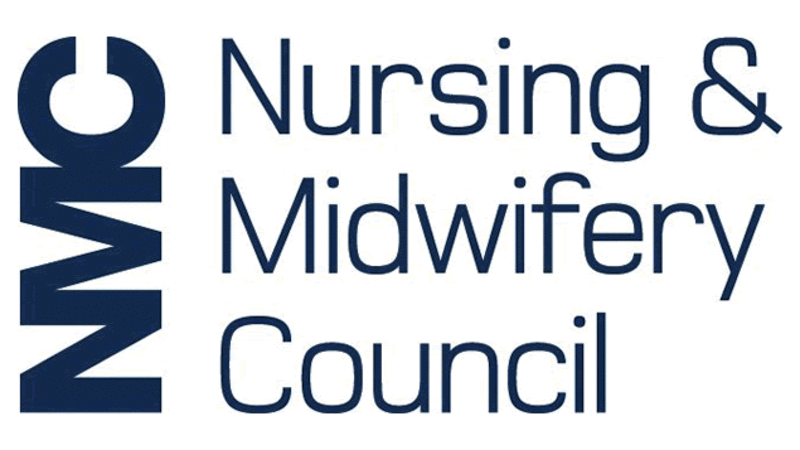Midwifery (Degree Apprenticeship)
Begin an exciting new journey in midwifery and gain professional accreditation from the Nursing and Midwifery Council (NMC).
As a midwife, you will provide vital care and support to women during their pregnancies, childbirth, and postnatal periods. Working alongside other health professionals, you will be responsible for:
- Monitoring the health of both mother and baby
- Helping with the birth
- Looking out for any complications.
This programme will equip you with the knowledge, skills and behaviours to practise successfully as a registered midwife. You will study on campus in our state-of-the-art simulation labs and gain practice-based learning and hands-on experience with your employer.
Accredited by the NMC, this programme enables you to earn while you learn. You will gain relevant industry experience alongside professional registration and certification.
This programme is based on the Nursing and Midwifery Standards (NMC 2019). It is Level 6 and mapped to the apprenticeship standard ST0948.
Applications and recruitment for the Midwifery Degree Apprenticeship are undertaken by our Partner Trusts, not the university. Applicants should agree in advance with their employer Education/Apprenticeship Lead, for which course they will be applying for. For further enquiries, employers will need to contact apprenticeships@gre.ac.uk.
Degree apprenticeship
Applications are made through the apprenticeships programme.
School
Locations
Duration
3 years full-time
Start month
September; January
Fees information
For fee information related to this course, please see fees section below.
What you should know about this course
What you will study
About the course team
You will be taught by an expert team that includes senior academics, technical officers, and practitioners with industry experience. Trained postgraduate researchers may also contribute to seminar teaching with the module leader. Teaching is informed by our research and consultancy work, and 97% of our lecturers hold a teaching qualification.
Come and meet us
We are offering virtual events so you can still experience how Greenwich could be the right university for you.
Next Open Days
Got a question?
To find out more about our Open Days and Campus Tours or if you need any assistance, please email opendays@gre.ac.uk.
Entry requirements
Applicants will need:
- Mathematics and English GCSE grade A-C/9-4 or recognised equivalents
- Transferable skills and readiness to study at the undergraduate level
- Two years of employment in a relevant health or social care setting
Take your next step. Begin your apprenticeship journey with the University of Greenwich. Email us today at apprenticeships@greenwich.ac.uk
For more information, use our contact form or call us on 020 8331 9000.
You can also read our admissions policy.
Further information about entry
For more information, please use our contact form or call us on 020 8331 9000.
You can also read our admissions policy
Available to overseas students?
No
Can I use Prior Learning?
Find out more on our Recognition of Prior Learning pages.
How you will learn
Teaching
Learning takes place through a combination of timetabled learning and independent study.
You can view more information about how each module is taught within our 'What you will study' section.
Seminars and workshops enable you to discuss and develop your understanding of topics covered in lectures in smaller groups. You will also be able to meet your personal tutor. Timetabled learning may fall between 9am and 9pm depending on your courses and tutorials.
Class sizes
Lectures are usually attended by larger groups and seminars/tutorials by smaller groups. This can vary more widely for modules that are shared between degrees. Apprentices also take part in shared/collaborative modules with other learners, providing a perfect opportunity to develop teamworking skills. Workshop and lab sessions enable you to work in smaller groups of learners.
Independent learning
Outside of timetabled sessions, you are also expected to dedicate time to study. This may involve further reading and research, preparing coursework and presentations, and getting ready for tests and exams. Our facilities are designed to support you in these activities.
You can use our libraries and online resources to support further reading and research.
In addition to the training plan agreed with your employer, it is possible you may also:
- Attend guest lectures from industry experts
- Take part in employability and enterprise workshops
- Join student societies
Overall workload
In a typical week learning takes place through a combination of:
- Lectures
- Seminars
- Laboratory practicals
- 1-1 tutorials
Assessment
You can view how each module is assessed within our 'What you will study' section.
Each course has formal assessments which count towards your grade. Some courses may also include 'practice' assignments, which help you monitor progress and do not count towards your final grade.
Feedback summary
We aim to provide feedback on assignments and to release examination results within 15 working days.
Dates and timetables
Full teaching timetables are not usually available until term has started. For any queries, email us at apprenticeships@greenwich.ac.uk.
Fees and funding
Tuition fees
The course fees are shared between government and employers. Visit our degree apprenticeships pages to find out how the cost of your course is met.
Other costs
This programme can be funded through the Apprenticeship Levy. Apprentices are not required to pay for their teaching and learning. Find out more about who pays for apprenticeships.
Apprenticeships are paid for by employers, not apprentices.
Employers with a payroll of more than £3 million can use their apprenticeship levy contributions to pay for places on apprenticeship programmes.
Any business with a payroll below £3 million is eligible for government funding that will cover at least 95% of the cost of an apprenticeship programme.
Additional incentives are also available to employers who take on young apprentices.
Mode of study
Select from the dropdown below.
| Course level | |
| UCAS code | |
| Duration | |
| Location |






